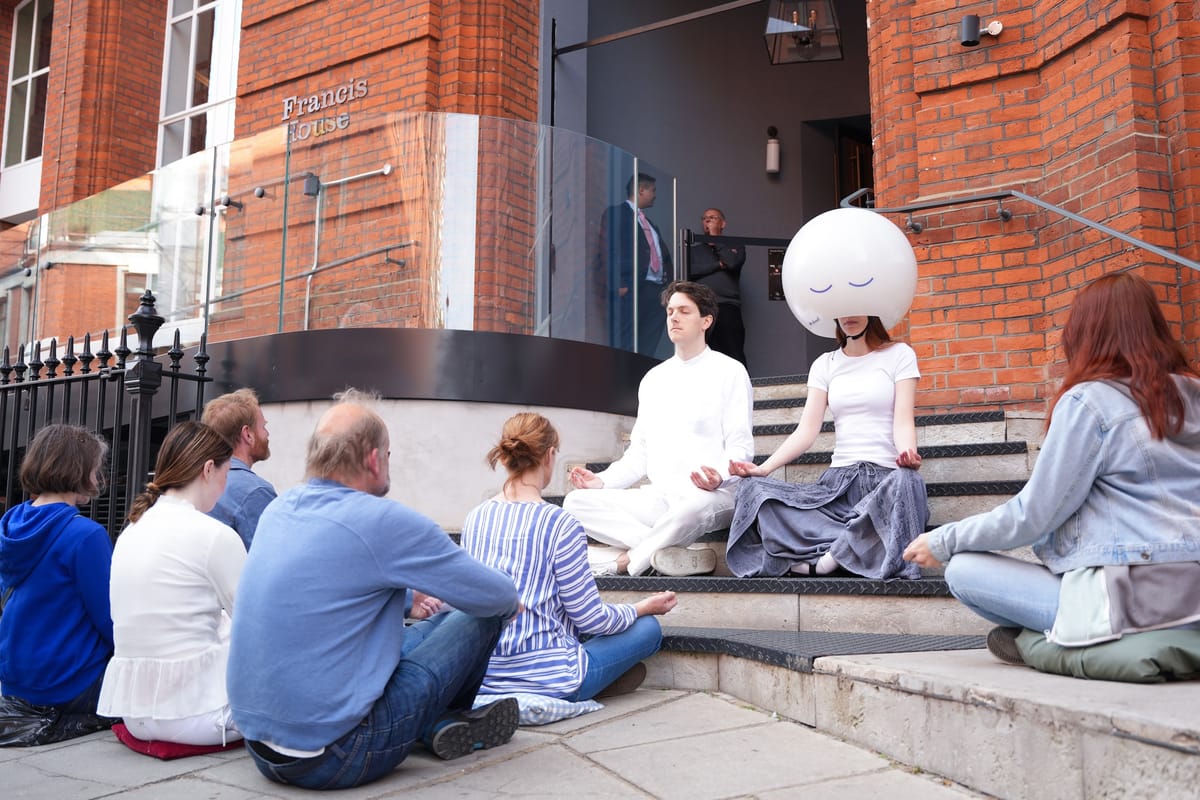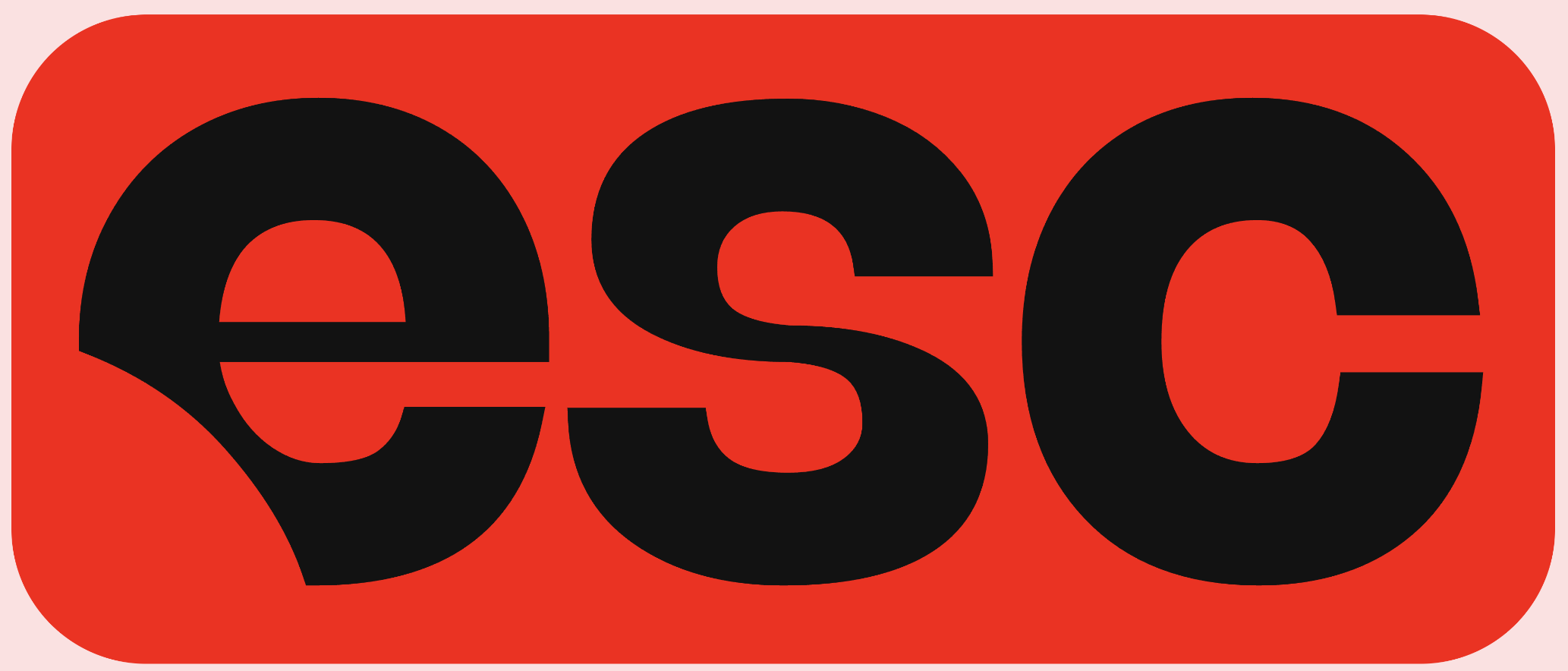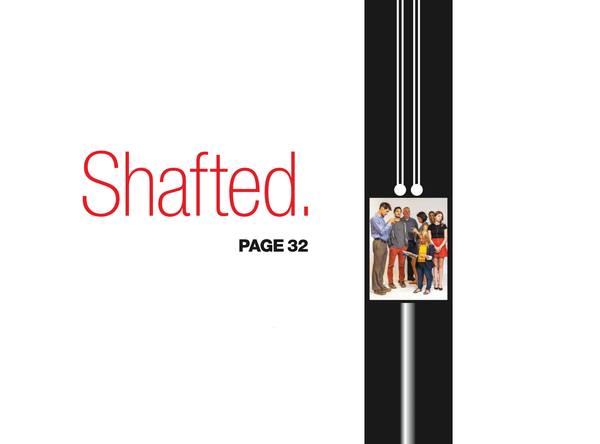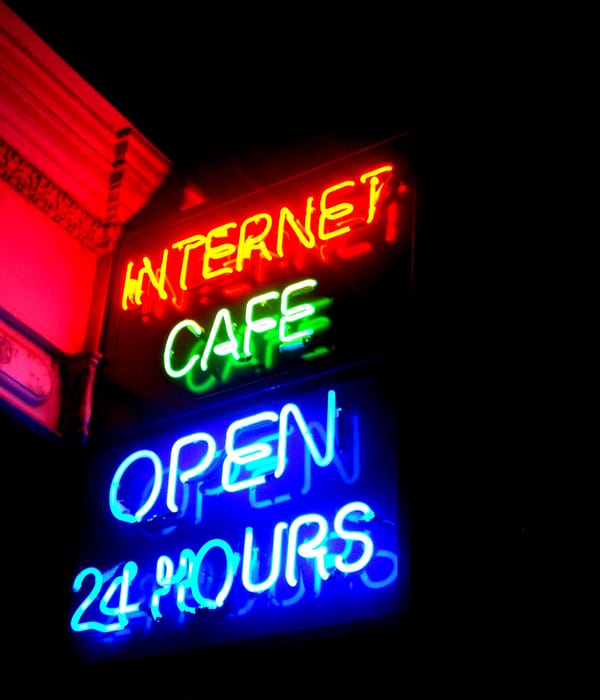The F-List receipts are in: The agency most reliant on fossil fuel revenue represents COP30
Your TL;DR Briefing on things worth tracking — and talking about over your next power lunch. *Wink.* This time the thing is absurd: Edelman profits on fossil fuel cash while representing U.N. climate talks in Brazil, as revealed in Clean Creatives' research into Big Oil in the creative industries.
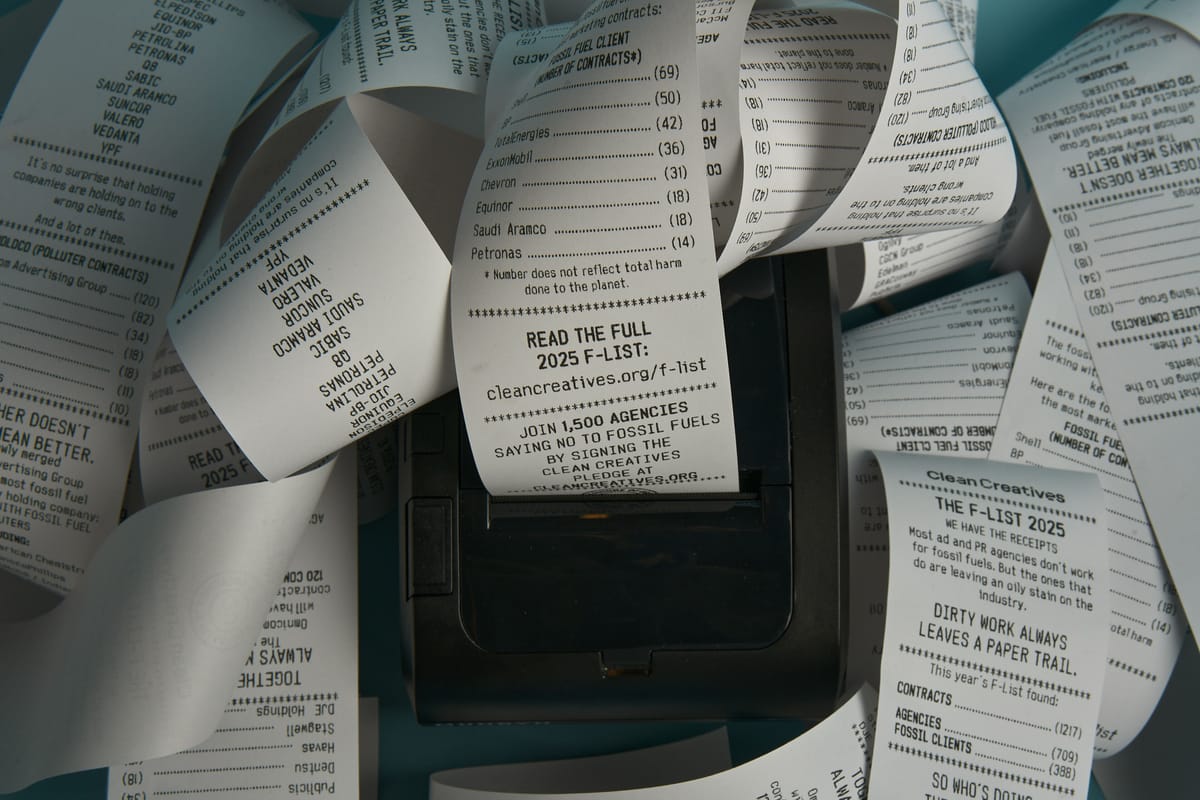
The thing is:
This June was the hottest on record in England. Perhaps not that hot by global standards, but in this temperate island country, any time thermometers record 30 degrees Celsius, or about 86 degrees Fahrenheit, you can expect U.K. news outlets to run headlines announcing the hundreds “expected to die,” which the heat is “set to kill.” We were not built for the looming climate. Nor, for that matter, was Richard Edelman.
This heatwave set an urgent mood for London Climate Action Week — the recognition that the world’s most powerful and least scrupulous leaders continue to fail to act in a meaningful way to address the climate crisis. One reason for all the footdragging, the greenwashing distractions and climate disinformation is, of course, Edelman. Among his other accolades, Edelman was declared a “top climate villain” by The Guardian for his public relations agency’s extensive work for fossil fuel clients.
During the week, sweat dripped into my eyes, which stung as I power-walked my way between a few too many panels and happy hours. At one mixer, I got chatting with a duchess, who was enamored by my pleated blazer, which I told her I bought on eBay; as she departed, it appeared she could not remember my name, so bid, “Farewell, Fabulous Suit!” At another, I accidentally got stuck in a conversation with a few bros who work at a “platform” selling carbon offsets. But, hands down, my favorite event that week was the one that showed how Edelman is the PR emperor with no clothes.
For context, I have always been intrigued by villains. And this year, as a journalist, I’ve been trying to intimately understand as much as I can about how Edelman can function knowing the work his company does.
In May, for instance, I conducted a first-person investigation into how Edelman, the man himself, can even sleep. I had demoed a satirical meditation app, Oilwell, using its sleep sound mixer, which allows users to simulate sleeping like a PR company CEO who profits off of Big Oil. You can dial up “ambiances” with not-soothing names such as Wildfire, Hurricane, Sirens and Screams. I really did try this. As I reported here in ESC KEY .CO, I could not fall asleep to the sounds of climate crisis-linked disaster. It made me wonder how Edelman could. So I reached out to Edelman for comment about how well he slept. But he did not reply.
Unable to verify his sleep routine, I decided the next best step would be to understand the ins and outs of how he runs his business, the PR empire his dad founded. I showed up to the Kings Cross venue, The Mills Fabrica, along with several dozen creative industry professionals, journalists and climate activists for the launch of the Off Ramp Report, presented by Duncan Meisel, executive director of Clean Creatives.
The Off Ramp Report represents the first research of its kind, aiming to estimate how much money the creative industries make off of fossil fuel contracts. It directly targeted a common rhetorical tactic used to defend this kind of work: that firms need the money to keep people employed. Rather, the report proposes a model for estimating fossil fuel companies’ overall spend, putting the approximate value at $7.1 billion. This amounts to less than 1% of global marketing spend across all industries. Meisel walked the room through how agencies might avoid reputation damage, retain talent and “off ramp” to rapidly expanding sectors such as alternative energies.
As Meisel put it at the end of the presentation: “Every difficult industry transition begins from a place where change seems impossible, and ends with that change looking inevitable in hindsight.” In “Mad Men” advertising lingo, oil is the new tobacco, only worse — far worse.
If climate inaction is powered by disinformation produced by the creative industries, then shutting off that pipeline is a climate solution, the Clean Creatives campaign contends. And if there’s a feasible path to drop fossil fuel contracts while growing in other sectors, then we might conclude that Edelman and the other agencies that continue to do this dirty work are choosing to fuel the climate crisis. This, a person with a spine might argue, is evil.
The thing about that is:
“This report is the result of seven months of deep investigative research into lobbying databases, creative portfolios, government records, news websites and social media,” Nayantara Dutta tells me. As head of research at Clean Creatives, Dutta has spent years tracking the advertising industry’s fossil fuel entanglements. She speaks with the measured exhaustion of someone who has counted every receipt.
The F-List 2025 launched in September with numbers that should surprise no one who has been paying attention: 1,217 fossil fuel contracts held by 709 agencies worldwide. Europe leads with 312 contracts, up 29% from last year. The United Kingdom alone accounts for 112 of those. France adds 33. Spain contributes 23.
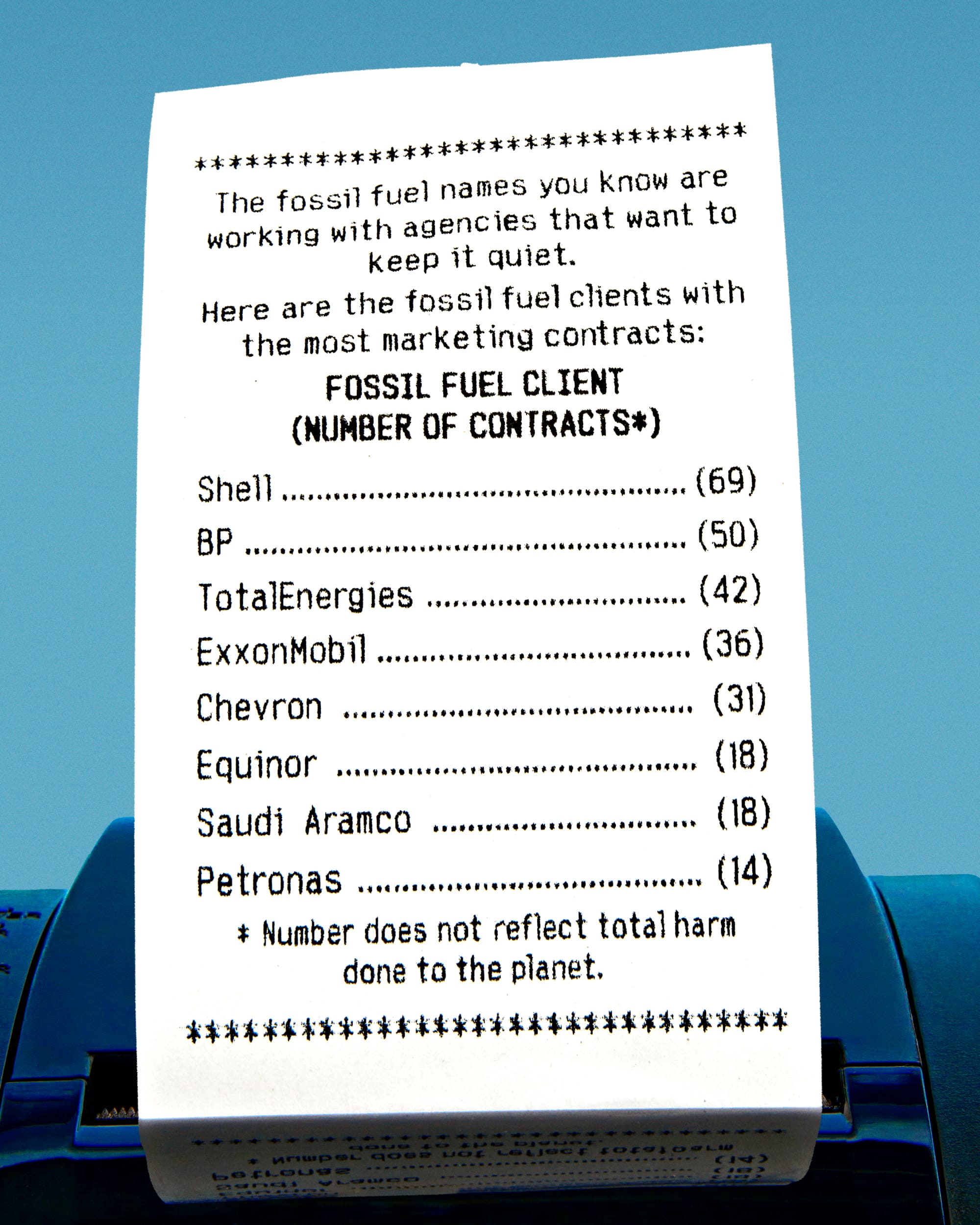
But Dutta sees something darker in the data. The narrative has shifted. “In 2021, oil and gas companies were making net-zero pledges and promoting a shift to renewables,” she says. “But today, they’ve withdrawn renewable investments and gone all in on fossil fuels. In 2025, oil and gas campaigns position fossil fuels as being essential and unavoidable.”
The new Fossil Fuel Income Risk Exposure index, or FFIRE, quantifies what industry watchers have long suspected. While most holding companies derive less than 1% of their revenue from fossil fuel clients, Edelman depends on them for 5.64%. WPP sits at 0.68%. Omnicom at 0.55%. Havas at 0.38%. The rest trail even lower.
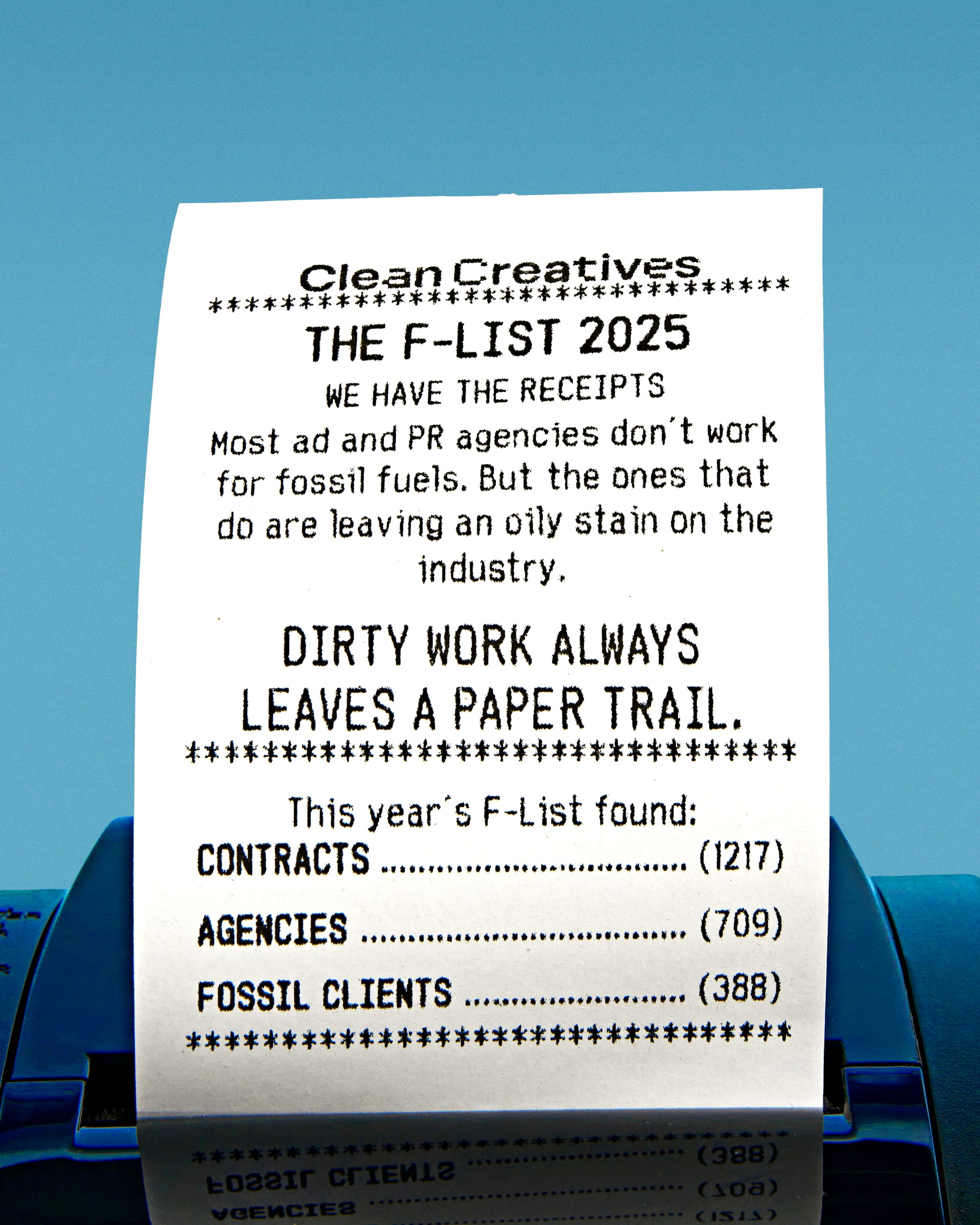
“Climate misinformation is worse than ever,” Dutta observes. “We have more research coming out about this soon, but despite new technologies and tools, fossil fuel campaigns are reflecting the climate denial of the 1960s.”
Where things get interesting:
COP30 arrives November in Belém, Brazil, at the edge of the Amazon rainforest. The United Nations climate summit will gather world leaders to negotiate humanity’s response to the climate emergency in a city where the crisis manifests daily in drought, deforestation and ecological collapse.
Edelman won an $835,000 contract to craft Brazil’s strategic narrative for the summit. The firm will manage international media relations, create digital content and navigate PR crises. The United Nations Development Programme awarded the contract on Brazil’s behalf after what officials called a “rigorous” selection process.
Ana Julião oversees the work. Edelman’s Brazil lead appears in company profiles touting her expertise in protecting reputations for Petrobras, Shell and Chevron. Last year, she spoke at the Brazilian Institute of Oil and Gas about PR’s role in “building and managing” businesses’ reputation on sustainability issues.

The same executive expanding Shell’s drilling operations in Brazilian waters will shape Brazil’s climate story for the world. Shell plans to invest billions in new oil and gas production off Brazil’s coast through 2030. The company calls Brazil a “core growth opportunity” in its upstream portfolio. Julião manages both accounts from the same São Paulo office.
Clean Creatives’ Meisel puts it plainly in a statement: “There is literally no agency worse suited for a role at COP30. If the UN climate talks succeed in their goal, Edelman faces an existential threat to their revenue.”
The thing to talk about over your next power lunch:
We all can have a role to play in stopping fossil fuel disinformation and pushing the taboo toward the tipping point, activists have told me in my reporting this year.
Last year’s New York Climate Week featured a workshop called “Call Out the BS: How to Speak Up & Push Back in Advertising and PR.” It proved so popular that organizers turned it into a resource others could present in their own communities. In April, more than 100 creatives attended the first online version, walking through the skills needed to challenge industry complicity. In May, ESC KEY .CO’s soft launch event at Somerset House, co-hosted with Clean Creatives, included a presentation, where I shared observations from covering the industry’s climate contradictions as a journalist on several beats.
Drew Solomon, who co-led the original workshop after leaving his own role at Edelman, understands the weight of speaking up. “All I have is my voice. And all you have is yours,” he said. “Whether you use it in your community or with your government or with your employer, being able to use your voice and speak your mind and speak the truth really overrides that fear in the end.”
The fear is real. Solomon acknowledges it. He has stood outside meetings to catch his breath before saying something “controversial.” But the relief afterward, he says, is palpable. “What I wish people knew is how liberating it is to speak the truth alongside your community.”
Dutta offers a fact worth memorizing for your next agency all-hands: “Clean energy technologies are attracting twice as much capital as fossil fuels. I’m going to need you to read that again, because this is what Big Oil does not want you to know. Clean energy and clean agencies are the future.”
So far, 1,500 agencies have signed the Clean Creatives pledge. Another 3,700 individual creatives have added their names, and sleep better as a result.
As for Edelman’s sleep hygiene? I’ve followed up to my request in May, and I will update you if he or his team ever replies. Meanwhile, I will be sleeping to playlist called “Sleep Piano” tonight, per the usual.
And one long thing to read:
“I slid up another ‘ambiance’ called Drilling to max. Could this one lull me into a relaxed state of climate denial? No, after a couple of seconds of that, I determined that there is no way I could sleep like Richard Edelman, CEO and son of the founder of Edelman,” I reported in May, in this long-form feature on how creative workers are calling out the bullshit — and how you can, too.
